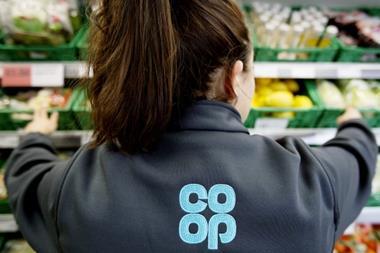Food retailers should follow in the footsteps of Tesco and Sainsbury’s and publicly report data on the amount of food they bin, MPs have urged as part of a drive to end the “grotesque” cost of wastage.
The Environment Food and Rural Affairs Committee members also urged the relaxation of rules that prevent the sale of “wonky vegetables”.
And they called on ministers to establish a national food waste reduction target.
Neil Parish MP, the committee’s chairman, said households threw away £10bn worth of food annually.
“Food waste has grotesque economic, social and environmental costs. Economically, food waste costs households hundreds of pounds a year and causes increased disposal costs to local authorities, pushing up council tax bills,” Parish said.
People were going hungry and using food banks, which was scandalous when so much produce was wasted.
Wastage was also an environmental “disaster” because energy and resources were expended unnecessarily in production only for the food to end up rotting in landfills, where they produced “potent climate-changing” methane.
The committee commended Tesco for its efforts and noted Sainsbury’s was moving in the same direction, but needed “more transparency”.
A voluntary approach across the industry would be inadequate because no other retailers had followed suit, it said.
The committee welcomed “the will retailers had shown to redistribute surplus food” but more needed to be done. Parish said: “There is a huge amount of surplus food that is currently not being redistributed.”
Parish said it was “ridiculous” that perfectly good vegetables were wasted simply because they were a funny shape yet knobbly carrots and parsnips did not cook or taste any different.
The report said retailers had set “unnecessary cosmetic standards” for fruit and vegetables. The result was wonky vegetables were either not being sold or were sold at discounted prices.
The MPs also want date labelling on food reviewed to see “whether there is a need for best before dates at all”.
Other issues raised include a priority placed on raising awareness among the public and for the examination of how lessons on waste could be incorporated into the school curriculum.
The committee expressed “concerns” that the Department for Environment, Food & Rural Affairs’ funding for waste body Wrap had declined over recent years.
Councils, which are responsible for addressing the challenges and barriers to increasing food waste collections locally, should share guidance and best practice nationally to help move towards a standardised approach, the committee said.






![PLAUK0125 Jacobs The Trussell Trust Portrait[53]](https://d2dyh47stel7w4.cloudfront.net/Pictures/274x183/6/4/1/322641_plauk0125jacobsthetrusselltrustportrait53_125111_crop.jpg)









1 Readers' comment